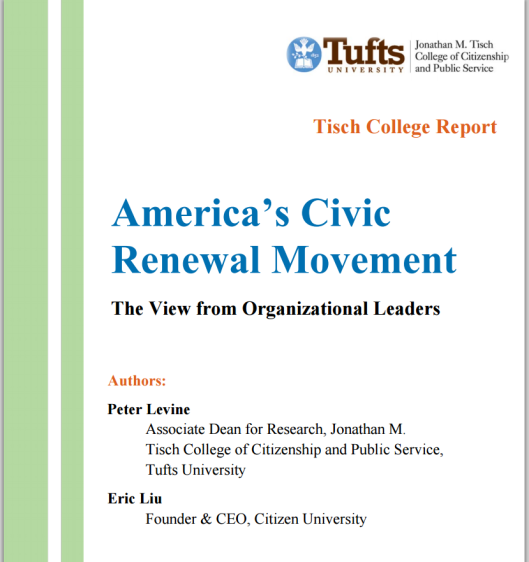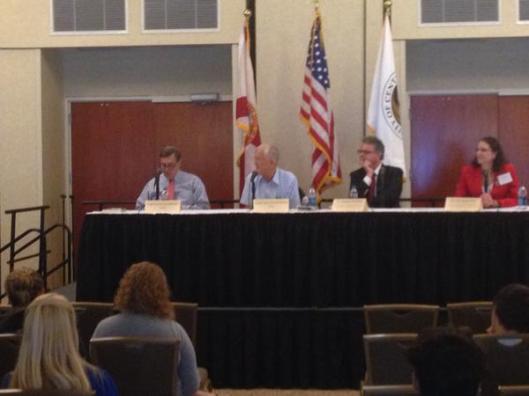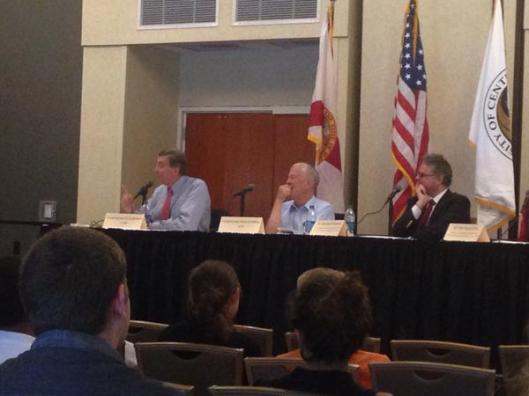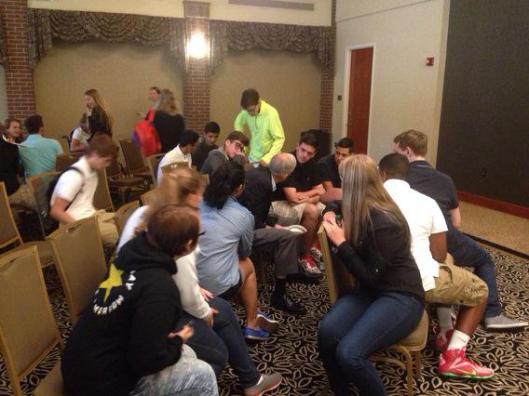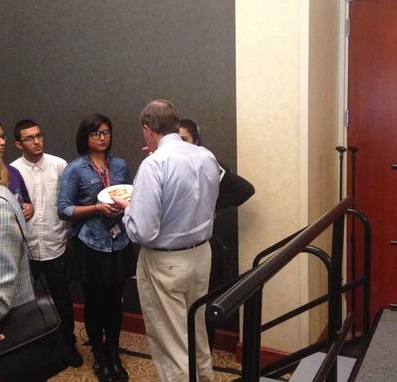It’s always exciting when we can share ideas for teaching about important stuff, and today’s suggestion was inspired by Cherie Arnette, the social studies supervisor for Escambia County (check out their civics review site!). She emailed us asking if we could come up with a bellringer activity to help teacher Florida Civics benchmarks SS.7.C.2.9, 2.10, or 2.11. For those unfamiliar with these benchmarks, 2.9 asks students ti evaluate a candidate for political office. 2.10 asks students to examine the impact of media, individuals, and interests on monitoring and influencing government. 2.11 has students analyzing media and political communications. You can get a good overview of each benchmark and their associated clarifications by visiting the Test Item Specifications book.
Cherie also asked us to start with this wonderfully evocative ‘Draft Biden’ ad below that aired during the Democratic debate (obviously before his announcement that he wouldn’t run).
For me, tears for sure. In any case, our own Valerie McVey suggested that the following might be perfect benchmark-aligned bellringer options for this ad. Note that ‘BC’ refers to ‘Benchmark Clarifications’. Review the test item specifications to explore those more.
C.2.9: Evaluate candidates for political office by analyzing their qualifications, experience, issue-based platforms, debates, and political ads.
BC 3 – Students will be able to analyze and/or evaluate the qualifications of candidates for public office based on their experience, platforms, debates, and political advertisements.
– What does this advertisement tell you about Joe Biden’s experience? Personal and professional? What evidence from the video helped you determine your answer?
– What does “Run, Joe” at the end of the advertisement mean?
– Is he a candidate for president?
C.2.10: Examine the impact of media, individuals, and interest groups on monitoring and influencing government.
BC 1 – Students will identify the methods used by the media to monitor and/or influence the government.
– The Draft Biden SuperPAC created this advertisement. (You might include a point about the difference between PACs and SuperPACs, but encourage teachers not to get caught up in this and forget the other questions. :)
– What is a political action committee? (content focus term)
– What is Draft Biden’s goal in creating this advertisement? How do you know?
C.2.11: Analyze media and political communications (bias, symbolism, propaganda).
BC 1 – Students will use scenarios to identify bias, symbolism, and propaganda.
– Remind students of the definition of bias.
– What is the bias of this advertisement? What evidence from the video helped you determine your answer?
BC 2 – Students will evaluate how bias, symbolism, and propaganda can impact public opinion.
– Remind students of the definition of public opinion.
– How might this advertisement impact or influence the public opinion of Joe Biden? What evidence from the video helped you determine your answer?
My own suggestion was to compare this ad to the language and elements of ‘The Man from Abilene’ (1952 Eisenhower) or ‘The Man from Libertyville’ (1956 Stevenson), which take a completely different tone concerning the qualifications of a presidential candidate and what matters. Both of those ads are available on the fantastic ‘Living Room Candidate’ website!
We are always looking for new ideas and ways to approach content. If you have anything, please share!


